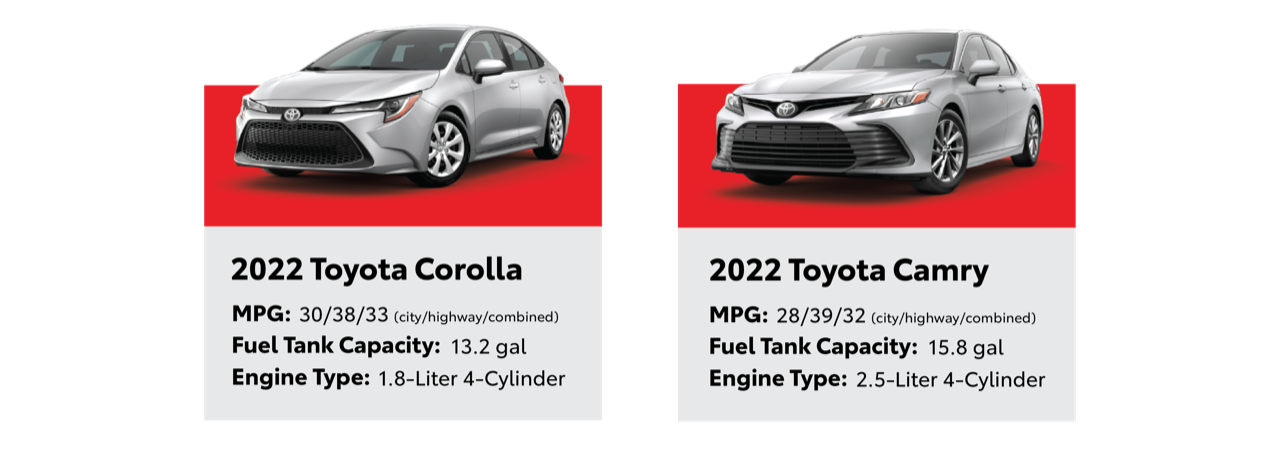Blitz News Digest
Stay updated with the latest trends and insights.
Fuel Efficiency: Your Wallet's Best Friend
Unlock savings with fuel efficiency tips that will boost your wallet and help the planet. Discover the secrets today!
Top 10 Tips for Maximizing Fuel Efficiency in Your Vehicle
Maximizing fuel efficiency in your vehicle is essential not only for saving money but also for reducing your carbon footprint. Here are top 10 tips to help you enhance your car's fuel economy:
- Maintain Your Vehicle: Regular maintenance, including oil changes and air filter replacements, plays a vital role in keeping your engine running efficiently.
- Check Tire Pressure: Keeping your tires properly inflated can improve fuel efficiency by up to 3%. Under-inflated tires increase rolling resistance, leading to higher fuel consumption.
- Lighten Your Load: Remove unnecessary items from your vehicle. An extra 100 pounds can reduce your MPG by about 1%.
- Avoid Excessive Idling: Turn off your engine when parked or waiting, as idling consumes fuel without moving you any distance.
- Drive Smoothly: Accelerate gently and maintain a steady speed. Rapid acceleration and hard braking can significantly decrease your fuel efficiency.
Continuing with our top 10 tips, here are some additional strategies to consider:
- Use Cruise Control: On highways, using cruise control helps maintain a constant speed and can enhance your fuel efficiency.
- Limit Air Conditioning Use: Running the air conditioning can increase fuel consumption. Use it judiciously, or opt for the vehicle's ventilation system when possible.
- Choose the Right Fuel: Always use the fuel grade recommended by your vehicle manufacturer, as using a higher octane than needed doesn’t improve performance.
- Plan Your Trips: Combine errands into one trip to avoid multiple short journeys, which can lead to increased fuel consumption as cold engines use more fuel.
- Stay Informed: Keep an eye on your vehicle's fuel consumption trends and adjust your driving habits accordingly. Utilize onboard diagnostics if available.

How Does Fuel Efficiency Impact Your Monthly Budget?
Fuel efficiency plays a crucial role in determining your monthly budget, especially if you rely heavily on your vehicle for daily commutes or long-distance travel. Higher fuel efficiency means you can travel farther while spending less on gas, ultimately freeing up more of your budget for other expenses. For instance, a car that averages 30 miles per gallon (MPG) will cost you significantly less at the pump compared to one that only achieves 15 MPG. This difference can translate to substantial savings over time, allowing you to allocate funds toward savings, entertainment, or even essentials like groceries.
Moreover, the impact of fuel efficiency goes beyond just fuel costs. Owning a fuel-efficient vehicle can lead to lower overall maintenance costs and a reduced environmental footprint. As fuel prices fluctuate, a vehicle with better fuel economy shields you from the spikes in gas prices that can strain your monthly budget. To maximize savings, consider tracking your mileage and spending on fuel each month. By evaluating your fuel efficiency, you can make informed decisions about your vehicle choice, ultimately keeping your finances in check while enjoying the benefits of a more sustainable lifestyle.
The Science Behind Fuel Efficiency: What You Need to Know
Fuel efficiency refers to how effectively a vehicle converts fuel into motion, and it's influenced by a variety of factors ranging from engine design to driving habits. The basic principle is simple: the less fuel consumed for the same distance traveled, the more efficient the vehicle is. Key elements that play a critical role in determining fuel efficiency include vehicle weight, aerodynamics, and tire pressure. For instance, reducing the weight of a vehicle can significantly enhance its performance, as less energy is required to propel it forward. Additionally, maintaining proper tire pressure reduces rolling resistance, allowing for better fuel economy.
Another vital aspect to consider is the engine technology. Modern engines, particularly those with turbocharging and direct injection, are designed to maximize performance while minimizing fuel consumption. Furthermore, advancements in hybrid and electric vehicle technologies have revolutionized the market, providing alternative methods of transportation that are not only fuel-efficient but also environmentally friendly. To summarize, understanding the science behind fuel efficiency can lead to more informed choices when purchasing vehicles and adopting better driving practices, ultimately contributing to reduced fuel consumption and lower emissions.